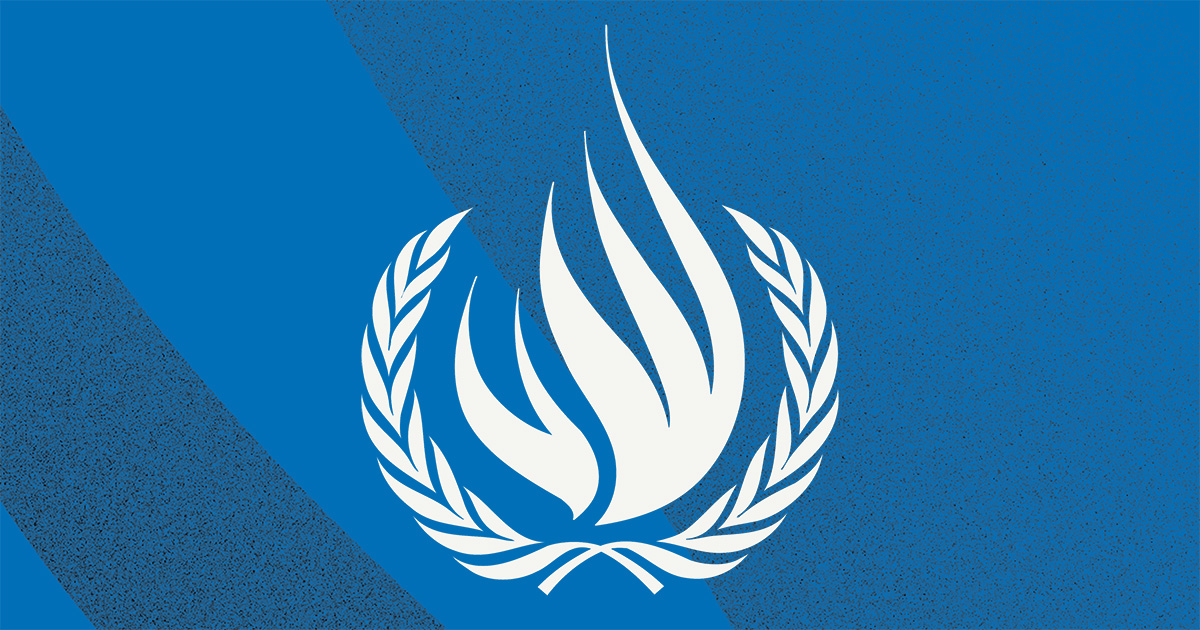
A UN expert today said she feared three human rights defenders serving 10-year prison sentences in the United Arab Emirates are being mistreated in conditions that may amount to torture and urged authorities to release them.
“Issuing long-term prison sentences to human rights defenders, in connection to their human rights work, is a practice that cannot continue, and is an issue I will be prioritising during my mandate” said Mary Lawlor, UN Special Rapporteur on the situation of human rights defenders.
“Not only have Mohamed Al-Roken, Ahmed Mansoor and Nasser Bin Ghaith been criminalised and imprisoned for their non-violent and legitimate calls for respect for human rights in the UAE, they have been subjected to ill-treatment in prison,” Lawlor said. “Reports I have received indicate that the conditions and treatment that these human rights defenders are subjected to, such as prolonged solitary confinement, are in violation of human rights standards and may constitute torture”.
Lawlor said Mohamed Al-Roken, imprisoned since 2012 on charges of “plotting against the government”, is subjected to intermittent periods in solitary confinement, allegedly without justification or explanation. In 2013, the Working Group on Arbitrary Detention (WGAD) found this detention to be arbitrary and requested his immediate release.
Detained since 2017, Ahmed Mansoor has also been held in solitary confinement. He was convicted in 2018 on charges of insulting the “status and prestige of the UAE and its symbols” including its leaders, and of “seeking to damage the relationship of the UAE with its neighbours by publishing false reports and information on social media”, for comments on social media. The human rights defender has been serving his 10-year sentence in Al-Sadr prison, where he is reportedly confined to a cell measuring four square metres with no mattress, and limited or no access to sunlight, a shower or potable water. In 2019, he went on hunger strike on two occasions to protest his treatment and conditions in prison. As a result of these hunger strikes, the second of which lasted 45 days, Mr. Mansoor’s health condition has significantly deteriorated and he has reportedly been denied necessary medical treatment.
The Special Rapporteur said Nasser Bin Ghaith – arrested in 2015 on charges relating to social media posts criticising human rights violations and political leaders – has been reportedly subjected to ill-treatment in Al-Sadr prison and then Al-Razeen prison, where he was transferred in 2017 in response to his 40-day hunger strike to protest his treatment and prison conditions. In 2018, he again went on a hunger strike for a reported 80 days to protest his denied access to medication, physical assault by prison authorities and periods in solitary confinement. The WGAD issued an opinion on Bin Ghaith’s detention, finding it arbitrary and requesting his immediate release.
“Issuing 10-year prison sentences to defenders in connection to their human rights work is not only an attempt to silence them and their efforts, but also an attempt to intimidate and deter others from engaging in this legitimate work, at a crucial time in the UAE when fundamental freedoms are undermined and civic space continues to shrink,” Lawlor said.
“I call on the Emirati authorities to ensure that these human rights defenders be released from detention, in order to continue their meaningful and necessary human rights work.”
The expert is in contact with the authorities on this matter.
The expert’s call has been endorsed by: Leigh Toomey (Chair-Rapporteur), Elina Steinerte (Vice-Chair), Miriam Estrada-Castillo, Mumba Malila, Seong-Phil Hong, Working Group on Arbitrary Detention and Mr. Nils Melzer, Special Rapporteur on torture and other cruel, inhuman or degrading treatment or punishment.
ENDS












